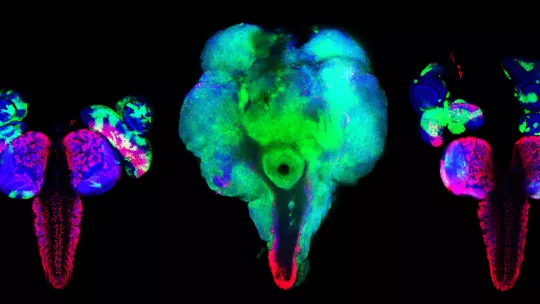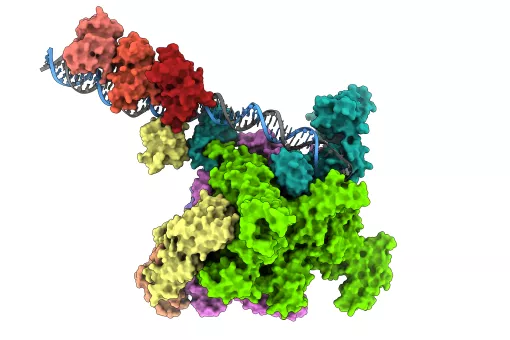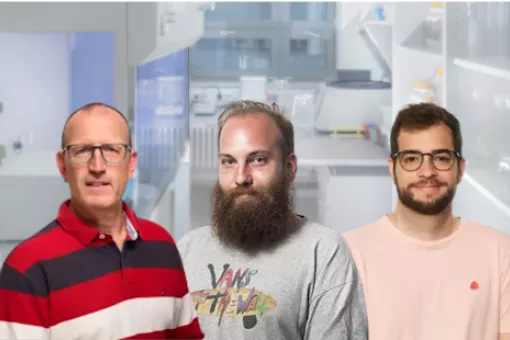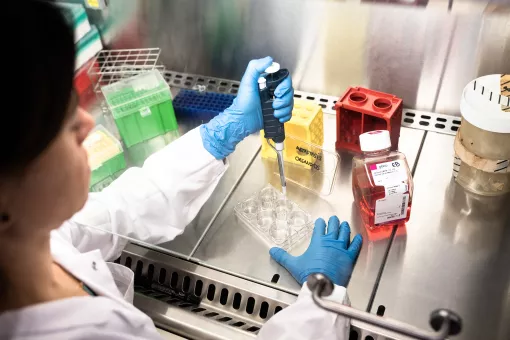Images
In a study published in Cell Reports,the scientists inhibited the capacity of RAS to block cell death, thus eliminating malignant tumours without affecting the development of organs.
The results of the study pave the way to combining irradiation treatments with the administration of RAS pathway inhibitors to eliminate tumour cells.
The RAS oncogene is activated in 30% of human cancers and it results in the proliferation and transformation of tumour cells. No effective inhibitor has been found for this protein to date.
ICREA researcher Marco Milán, head of the Development and Growth Control Laboratory at the Institute for Research in Biomedicine (IRB Barcelona), has led a study published in Cell Reports that identifies the weak point of RAS-expressing cells.
Milán´s lab has used the fruit fly, Drosophila melanogaster, to demonstrate that the DNA damage caused by the high levels of cellular proliferation induced by RAS can be exploited therapeutically, thus paving the way to devising strategies to specifically eliminate tumour cells that activate this oncogene.
Milán says, "RAS-expressing cells duplicate their DNA very quickly. As a result, errors and DNA damage occur. We have shown that RAS blocks the repair of this damage. In normal cells, this would cause cell death through the activation of the p53 tumour suppressor protein. But RAS blocks the ability of this protein to cause cell death, and this is precisely the aspect that we have exploited with both gene therapy and chemistry."
In the study, the scientists used TRAMETINIB, a drug prescribed for human melanoma, to inhibit the ability of RAS to block cell death. This approach led to the elimination of malignant tumours—selectively and by cell death—without affecting the development of organs or the flies themselves.
In the words of Lada Murcia and Marta Clemente, first authors of this study, "we have also shown that radiotherapy, which causes DNA damage, increases the sensitivity of RAS-expressing cells to gene therapy." Milán goes on to conclude, "the results of the study open up the possibility of combining irradiation therapies with RAS inhibitors to selectively eliminate tumour cells."
The study has been funded by the Ministry of Science, Innovation and Universities and been carried out with the collaboration of Anne Royou, at the Institut Européen de Chimie et Biologie, in Bordeaux (France).
Reference article:
Lada Murcia, Marta Clemente-Ruiz, Priscillia Pierre-Elies, Anne Royou, and Marco Milán
Selective killing of RAS-malignant tissues by exploiting oncogene-induced DNA damage
Cell Reports(2019) DOI: 10.1016/j.celrep.2019.06.004
About IRB Barcelona
The Institute for Research in Biomedicine (IRB Barcelona) pursues a society free of disease. To this end, it conducts multidisciplinary research of excellence to cure cancer and other diseases linked to ageing. It establishes technology transfer agreements with the pharmaceutical industry and major hospitals to bring research results closer to society, and organises a range of science outreach activities to engage the public in an open dialogue. IRB Barcelona is an international centre that hosts 400 researchers and more than 30 nationalities. Recognised as a Severo Ochoa Centre of Excellence since 2011, IRB Barcelona is a CERCA centre and member of the Barcelona Institute of Science and Technology (BIST).








